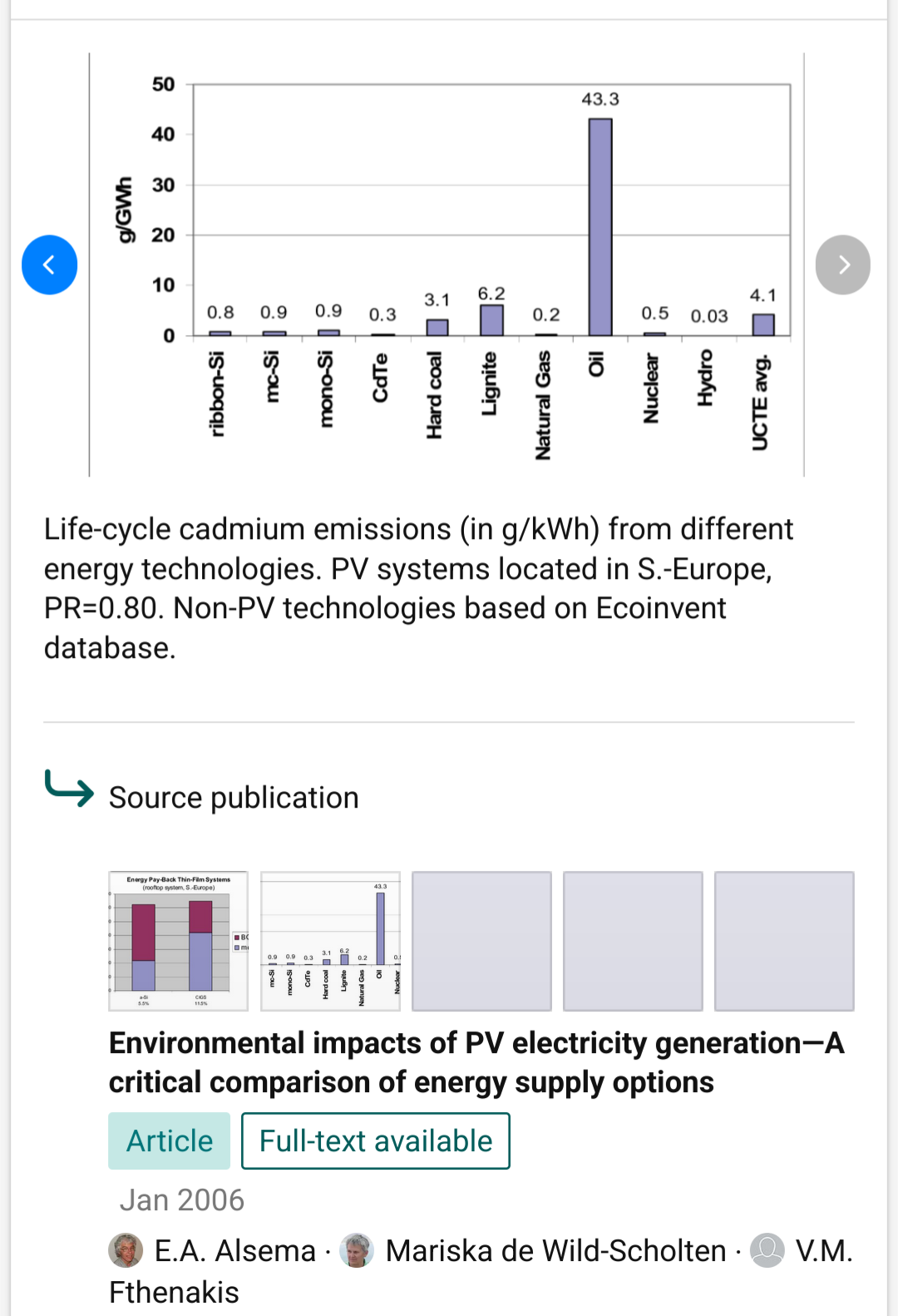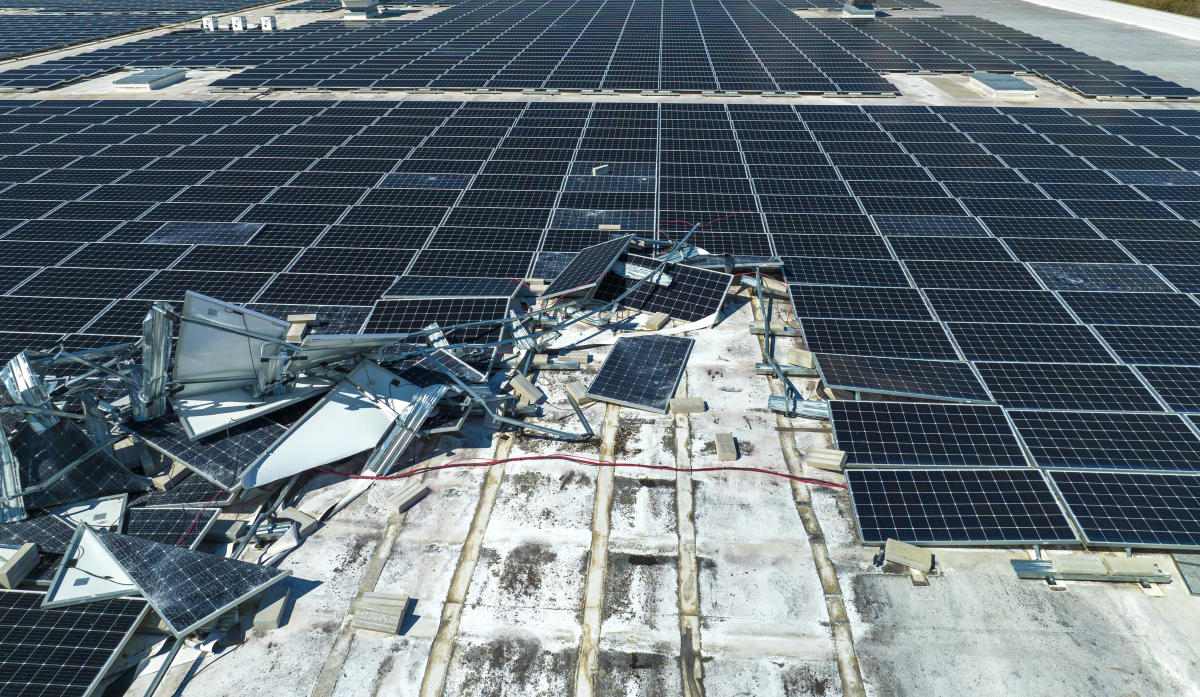balked at the length, but could not stop reading. a worthwhile 5 minutes of your life.
tl;dr “nothing good”. but while we still have no good solution for existing panels, manufacturing improvements that are ready for commercialization now could allow panels made in the next 2 years to be easily and profitability recycled at eol.
While at the same time those in the US really need to push for better legislature onwhat to do with the incoming solar panels, as we do not have much in place currently.
Or it just all ends up in the landfills like most other things.
and this is exactly where a restorative tax on fossil companies should go. tax the living hell out of them.
Oh no not this again. These articles pop up all the time and they’re kind of awful when put in context - like yeah solar panels aren’t perfect, but they’re pretty dang close honestly. It’s great that they mention the stuff at the end about laser welding, but the rest of the article is kind of just fear mongering.
Firstly, panels don’t really go bad - the article mentions this. But that doesn’t mean they have to be thrown away. Yeah, it makes sense to put 300w/m² panels on your solar farm and replace your old 200w/m² panels. But those old panels are generally still producing power, and can be sold as used for projects less focused on absolute peak efficiency. The old three Rs tell us, Reuse is generally better than Recycle.
Secondly, panels don’t randomly leech heavy metals. They sometimes have lead based solder, and contain small amounts of cadmium. If the panel is in tact in a pile or deployed it’s all locked up within the panel and doesn’t just jump out. It can leech out if you put ground up panels in an acidic landfill that leeches into the ground water - that’s bad so we shouldn’t do that, but we already don’t and have even more regulation coming.
Panels are mostly glass and aluminum by weight, they’re not like 20% lead or anything crazy. Recycling them safely is not some kind of crazy future tech, just a matter of regulation and economics.
Moreover, the amounts they contain are miniscule compared to what fossil fuels produce. As Nickelback says, look at this graph:

from here
Or this North Carolina paper:
Every GWh of electricity generated by burning coal produces about 4 grams ofcadmium air emissions.21 Even though North Carolina produces a significant fraction of our electricity from coal, electricity from solar offsets much more natural gas than coal due to natural gas plants being able to adjust their rate of production more easily and quickly. If solar electricity offsets 90% natural gas and 10% coal, each 5-megawatt (5 MWAC, which is generally 7 MWDC) CdTe solar facility in North Carolina keeps about 157 grams, or about a third of a pound, of cadmium out of ourenvironment.
And as far as total landfill waste its dwarfed by what fossil fuels produce, even just general consumer trash:

For most panels it seems like the most polluting thing about them is that they are produced using our current grid and not other solar panels.
I have a solar panel that died. A piece or plywood flung by a storm went right through it, leaving a 30 cm “wound”.
Well, to be honest, it’s alive, just weaker - the panel remains suitable for pumping water on the field during muddy season. I wouldn’t take a good panel to such a bad place, but this panel, I have no worries about.
As for what happens when they really, really die - they get disassembled. The aluminum frame gets taken off and goes into metal recycling. Junction boxes go to where plastic goes - not a nice place. The glass and doped silicon go into a crushing mill, after which they get separated. The glass is easy to recycle, but the doped silicon is difficult to refine again to such a purity, so it likely won’t become a solar panel. But it’s a very small fraction of the panel’s mass.

they go to solar panel heaven
Are they living beings?
The word die can mean end of life, but has an alternative regular meaning: stopped working.
We use it all the time, for example “I don’t know what happened, I was driving along and the engine just died.” “Due to bad weather my power died.” “I wanted to game, but my controller died.”
Words can have different meaning and the verb die has a lot of meanings. And there is also a noun die, which is also in common use.
died; dying ˈdī-iŋ
intransitive verb
1: to pass from physical life : EXPIRE died at the age of 56 die young died from his injuries a dying tree
2a: to pass out of existence : CEASE their anger died at these words
2b: to disappear or subside gradually often used with away, down, or out the storm died down
3a: SINK, LANGUISH dying from fatigue
3b: to long keenly or desperately dying to go
3c: to be overwhelmed by emotion die of embarrassment
4a: to cease functioning : STOP the motor died
4b: to end in failure the bill died in committee
5: to become indifferent die to worldly things
are you autistic?
deleted by creator







